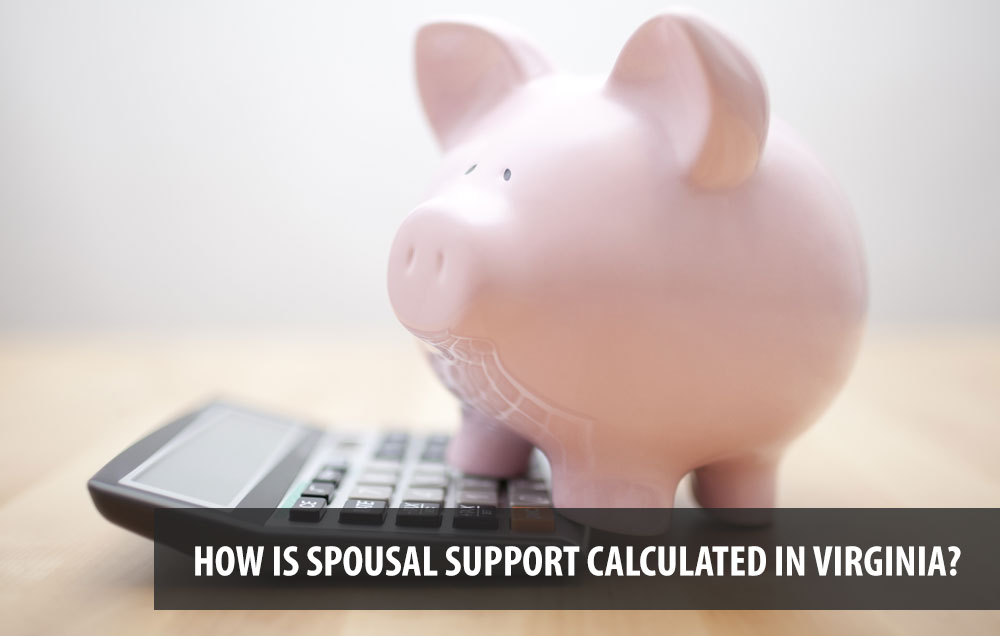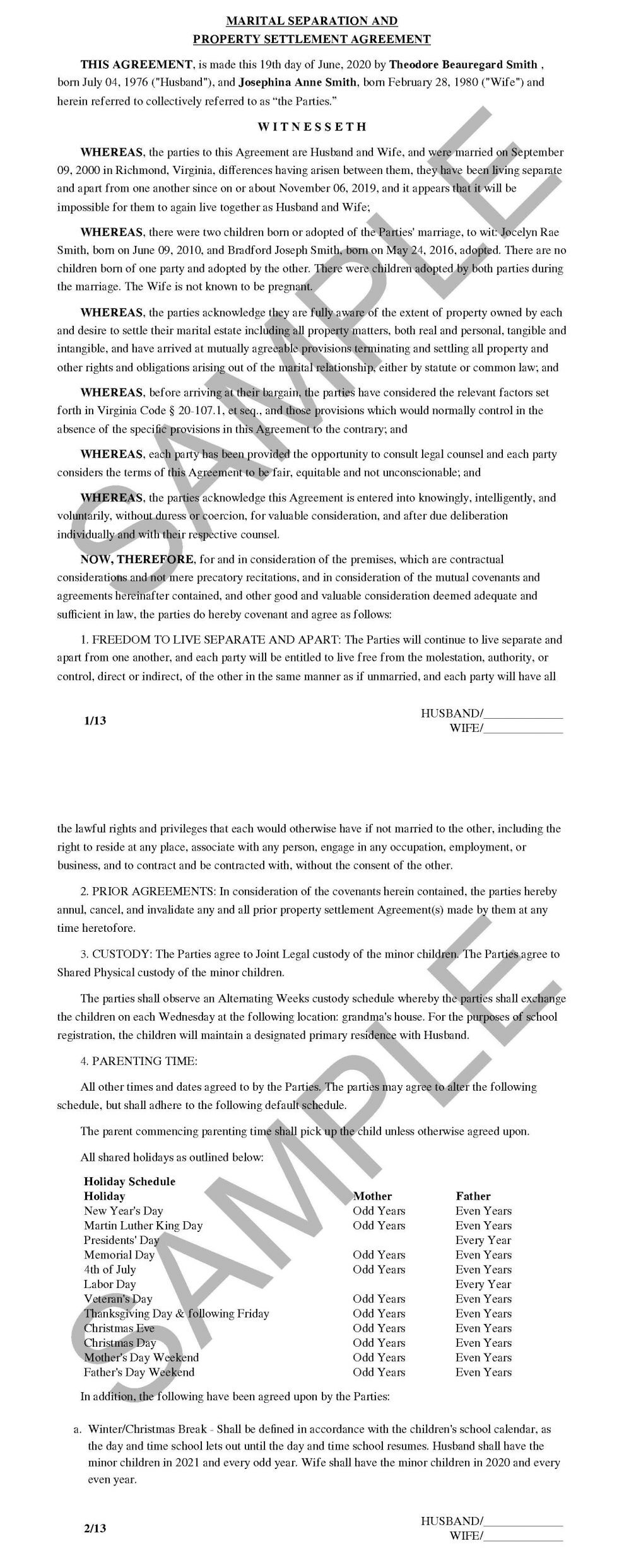Virginia seeks fairness in divorce, just as it seeks compassion in dealing with Virginia’s most innocent, its children. When a couple seeks separation and divorce, the courts expect the higher-earning spouse to provide financial support to the lower-earning spouse. Calculating spousal support occurs in two stages: pendente lite spousal support and spousal support after divorce.
Pendente Lite Spousal Support
With a no-fault divorce, you may only need a few months after being separated for six months (with no children) or a year (with children) before receiving a divorce decree.
That waiting time (after the start of your separation but before the divorce is final) is called pendente lite. Pendente lite is Latin for “during litigation” and pronounced “pen-dent-aay light-ee”). Even if you agree to a no-fault divorce, your divorce is still considered “under litigation” during that time.
Pendente lite spousal support is typically required under Code of Virginia § 16.1-278.17:1. The law ties pendente lite spousal support to child support only insofar as it reduces spousal support slightly if the two of you have children.
Though the court has wide latitude in picking an amount the higher earner must pay the lower earner, the law states,
If the parties have minor children in common, the presumptive amount of an award of pendente lite spousal support and maintenance shall be the difference between 28% of the payor spouse’s monthly gross income and 58% of the payee spouse’s monthly gross income. If the parties have no minor children in common, the presumptive amount of the award shall be the difference between 30% of the payor spouse’s monthly gross income and 50% of the payee spouse’s monthly gross income.
A couple of carve-outs exist. Wealthier Virginians (earning over $120,000 annual household income) enjoy this exemption: “The formula set forth in this section shall only apply to cases where the parties’ combined monthly gross income does not exceed $10,000.”
Perhaps the biggest carve-out is this simple sentence in the law:
The court may deviate from the presumptive amount for good cause shown, including any relevant evidence relating to the parties’ current financial circumstances that indicates the presumptive amount is inappropriate.
When completing a Do-It-Yourself separation agreement, you and your spouse need to determine what is best, what is equitable, and what is financially manageable for spousal support. You may owe her; she may owe you.
If the two of you agree to and sign off on pendente lite spousal support that deviates from the formula, the judge is unlikely to overrule it.
Spousal Support After Divorce
Once your divorce decree emerges from the Circuit Court having jurisdiction of your case, spousal support continues.
Under Virginia law, one spouse can be ordered (or can agree) to pay the other spouse for:
- A specific period of time, or
- An indefinite period of time, or
- A specific total amount, or
- A specific regular amount (weekly, monthly, quarterly or annually), or
- A specific reason (to acquire education to make the spouse employable)
Code of Virginia § 20-107.1 gives the judge so many variables in determining spousal support, the court is usually grateful when presented with a ready-made property settlement agreement that spells out pendente lite spousal support and spousal support after divorce.
With a separation agreement (property settlement agreement), getting those amounts right will result in a faster, smoother, easier separation and, eventually, a no-fault divorce. Use the same variables the court would consider:
- Your obligations, needs and financial resources (income from pensions, profit-sharing and retirement plans)
- Your standard of living
- The duration of your marriage
- Your respective ages, physical health, and mental states
- Whether, with children at home, either of you can pursue employment outside the house
- Your contributions, monetary and nonmonetary, you each made to the well-being of the family (if you have children)
- Property you own separately or as a married couple
- Earning capacity and employment opportunities for people with your skills, education and training
- If needed, opportunities to acquire marketable skills
- Sacrifices of earning power and career advancement you each made to help your marriage and family
- Mutual help to advance careers and boost earning power; she helped you get through HVAC school and you helped her become a registered nurse, for example
- Tax consequences to each of you
- Circumstances and factors that contributed to the dissolution of the marriage, specifically including any ground for divorce
While child support follows rigid rules, and pendente lite support offers a formula, spousal support after divorce is very much up to the discretion of the two parties and the court.
With divorce documents from TheFirmForDivorce.com, you and your spouse can make your own mutually agreeable calculations and present the court with a ready-made property settlement agreement. It is fast, accurate, fair, and tailored for Virginia’s laws.


